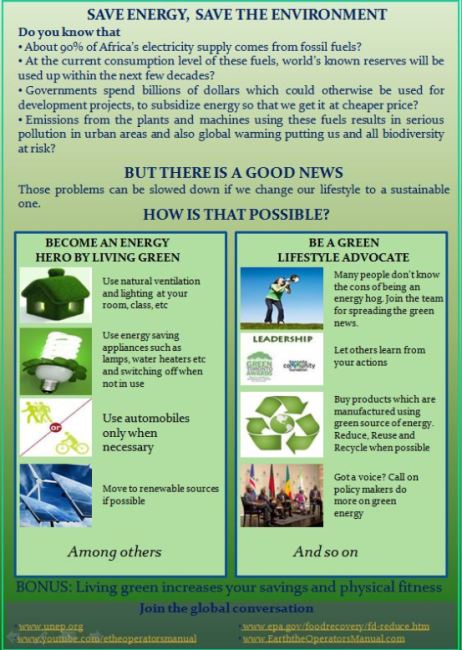Introduction
Before I go into the discussion, let me first and foremost make clarification upon which profession we are talking about here, for, profession is all encompassing, regardless of which institution the professional in question attends. It is in mind as we all know that profession is not limited to the academic courses we studied in our various institutions of learning, but also include other crafts as nail cutting, tailoring, blacksmithing, driving, car washing and water vending, among others. These are all professions, and those who engage in them are as well professionals in their own capacity as, say, Nail Cutters. But since our audience constitutes of students and the paper is targeted at them, it would be important to limit ourselves to the academic professions we are trained upon from our various schools. This will make the best of sense because even if we go outside the scope to include the Nail Cutters it will not benefit them per se, for not only the fact that the audience are students but also the context is designed to enlighten students primarily on the need to put our actions together toward having a better Katsina society, and if the Nail Cutters are themselves however students, we can frame another topic for another day to include them, but for this now, we shall focus on the academic professions only. May Allah help us.
There is no profession that has no direct bearing with human life, each is a must for a humanity to fine-tune its direction toward having a better society, and absence of one can however causes the humanity to lose its sense of direction with perhaps inevitable colossal amount of consequences. One profession reinforces another, therefore none can stand on its own to bring the meaningful development it was designed for. If this is true, can we then, at this juncture say, we need all the professions for us to achieve the overall development we so desire? If the answer to this one million naira question is positive, as we shall see in the end of this discussion, then when we say profession in this paper, we are not only referring to a single profession like Microbiology or Pharmacy but all the academic professions you ever known.
All professions are from one source
Before the 19th century industrial revolution in Europe, knowledge used to be monolithic, and the scholars who championed the cause were described as being Philosophers who are usually versatile in all fields of human endeavors. This is why you find their names mentioned in all the academic disciplines we study today- being it medicine, Agriculture, Political Science, Sociology, and likes. That is also why there is unending argument among scholars as to whether some courses in Art, like History, should rather belong to science. The root to such argument is simple- the founders of such courses are renaissance scholars whose knowledge cut across all fields of study. During this period, there was no single academic discipline as Economics, Pharmacy, Medicine, Political Science or Sociology as it is the case today, but the ability of the philosophers to equally comment on all fields of knowledge, creates the impression that all knowledge is from one source, and that source was no other than a “Historical Pot”. As nature has it, the pot’s life span terminates, as Industrial Revolution occurred, and issues demanding wider research begin to emerge. This development led to the emergence of many academic disciplines in both natural and social sciences as stated earlier.
So from the above analysis, do we therefore agree that it was only a circumstance that separated the different courses, and had there been no such circumstance, we would have to be faced, in this generation, with only one option; to either accept the fact that we will read vastly to become all-inclusive-professionals or abandon it all and live a life of darkness thereby becoming just a burden to the society without even a nail cutting skill to contribute to the development of the humanity? If we all agree this is true, can we also safely say that human intellect is declining especially in Africa, and in Africa, Nigeria, and in Nigeria, Northern part of it, and in the Northern part, Katsina, and in Katsina, among the Youth? If yes, then why?
Harmonizing all professions towards a better humanity
All disciplines aim to achieve one common objective at the end of the day- to make world a better place for humanity- but how that common objective can collectively be achieved depends largely on how appropriate we put all the disciplines into use- if, for example, the need to remake Katsina to be the Dubai of West Africa that it was centuries ago arises, the first thing to do is to task those in art like History to go as far back as to reviewing the ancient History of Katsina from the beginning to the time it started manifesting signs of declining, up to its present state, to uncover the causes of its greatness and the challenges that led to its present predicament, and to also bring to surface the picture of what the future potential is if nothing has or has not been done. From there, those in Social Sciences pick, and recommend the way forward and from the concluded work of the social scientists, those in management like public administrators make positive policies towards a better world.
Along this vein, if medical personals gather together and identify Candidiasis to be the major medical problem with women and call on government to act quickly or there will be serious trouble with Katsina women, government will respond in time. Sociologists can add voice to the call by relating to government the social consequences of the disease. Meanwhile, we cannot expect doctors, after having discovering cure for HIV, to however go further as to address the menace of stigma against the victims. In this instance, Historians, sociologists and other related professionals should be engaged to enlighten the public against the danger of stigmatization- being more dangerous, in this case, than the disease itself to the life of the victims. More so, would a judge not depend on ‘Paternity Test’ result, to rule over a controversial case where a father denies his biological child? Come to think of it if urban and regional planners are to plan a new Katsina town without incorporating the social urban ideas of urban Historians/Geographers, whose ideas will cover the social aspect of the urbanization? Would there not be social consequences, as we have been seeing now, in the long run, if the city has finally been built and human live in it without social aspect of urbanization being taken care of?
Conclusion
Since it was a ‘MONOLITHIC KNOWLEDGE’ that set the renaissance generation on course, and perhaps was what kindle the subsequent generation’s way to greatness, it is left to us this generation to either make a wise choice by putting together all our today’s fragmented courses of study into a rather ‘MONOLITHIC ACTION’ that will not only liberate us from the life of darkness we youth seem to be living, but as well enable us to make Katsina a better place for all as it had been centuries ago, or because of lack of awareness continue to consider our various professions as just a means of acquiring a ‘White Color Job’ and leave the society on its own to keep on dying, a slow death. Until we put all our professions into proper perspective such as to be so practical to guarantee a better humanity, we will however continue to live a life of darkness and thereby contribute nothing to the overall development of humanity.
Written by Abdullahi Rabi’u
A paper delivered at an annual congress of Katsina Education Charity Club on Eidul Fitr day, 8th August, 2013













